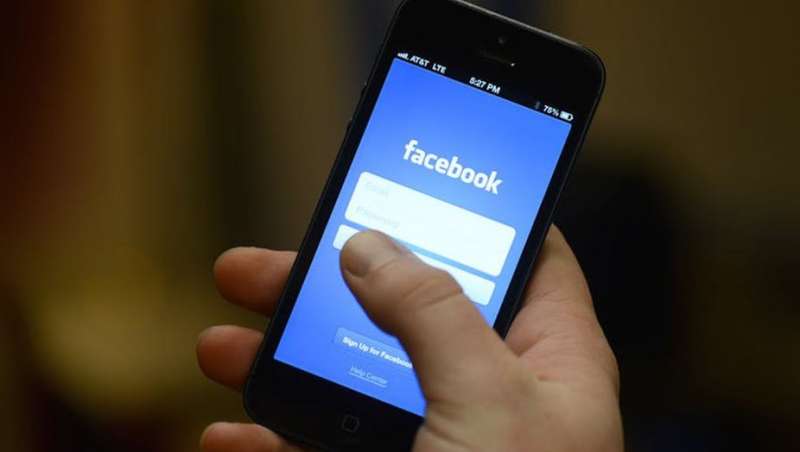I am not the sum of my personal data

The Cambridge Analytica scandal scandalises everyone… and at the same time, no one. Similarly, Mark Zuckerberg's solemn yet insolent testimony before the US congress is both reassuring and troubling.
We are oddly complacent and ambivalent, lost in a legal and technical labyrinth that has made this silent theft not only perfectly lawful, but also a consummate example of our new digital reality.
Beyond our own gullibility and indignation
First and foremost, there is the problem of cyber interference in our democratic systems. Cambridge Analytica apparently obtained secondhand data collected via a gaping loophole in Facebook's then news feed algorithm. In 2014, when, with naive indignation, users discovered this shortcoming, the company made a unilateral decision to close the loophole.
It appears that Trump's campaign team then asked Cambridge Analytica to tailor highly scientifically targeted publicity campaigns aimed at exponentially increasing support for the candidate during the US presidential election of in 2016.
Beyond our indignation, there is a deeper problem.
The fact that Cambridge Analytica gained access to the personal data of around 87 million Facebook users reflects a far more compelling, although less obvious, reality. We are outraged, incredulous: how could they have been that intrusive without us even noticing?
Has my personal data been stolen? Lost? Misplaced? What, exactly, does this data consist of? In what way is it personal, and how is it really mine? Why does it need to be protected? Is my personal data "mine" in the same way that a bicycle is mine? Can I sell it? And if so, to whom and at what price?
A piece of information
"57" – This is a piece of data, of digital information. Of course, that number is not mine. It belongs to no-one. Even if I could trace my lineage back directly to the Arabian inventors of our numeric system, I would never attempt to claim this number as my property.
But if I tell you "57" is my age, then you have obtained a piece of personal data. Personal data is an aggregation of various kinds of information, made up on the one hand of a fact and on the other the individual to whom it applies. Personal data is information that can identify me, and me alone, as an individual.
But if the new watchword of our times is "personal data protection", what exactly is being protected? From what or whom does it need protecting? What is the relationship between "my" personal data and myself?
Willing and complicit in data collection
What is clear is that protecting an individual's personal data is not the same thing as protecting the person themselves, at least not in any simple sense. We cannot protect data in the way we would protect an actual object, by taking physical precautions.
In other words: I am not the sum of my personal data. I am not identical to the digital information that is constantly being collected on me and around me, no matter where I am or what I am doing.
Of course, while I am not my personal data, I am increasingly represented by it in what I do, in my work and my leisure time. I am represented by personal data relating to my friends and acquaintances, my university, my employer, the government, security forces, etc.
But what makes this situation even more troubling is that I increasingly present myself through my personal data. Even more curious, I am most often complicit in the systematic collection of my personal data. I seek it out, even desire it.
Affirming a manufactured representation
The moral ecosystem of our social media depends heavily on an unprecedented kind of manufacture and manipulation of the self. Our affirmation of ourselves is dependent on our affirmation of all those around us – the affirmation of a necessarily incomplete, inauthentic, manufactured representation of ourselves, whose inauthenticity is increasingly the vector of our selfhood.
We are heading towards a situation where the most "natural" (and above all most effective) way to protect ourselves is to protect our personal data, which is being collected and processed by automated algorithms, coded by programmers who do not know us, and whom we couldn't care less about.
When Michel Foucault stated in the final pages of his book, The Order of Things, that "as the archaeology of our thought easily shows, man is a recent invention. And one perhaps nearing its end", he was referring, without being able to precisely name it (he was writing in 1966), to the implicit growing digitization of the human sciences since the "classical era".
The disappearance of the self in the digital economy
In a country and a continent founded on universal principles, including that of individual sovereignty, we must ask ourselves where the (automated) collection, storage and resale of personal data will lead us.
Strangely, personal data, so vitally important to me and you, is of no interest to online companies like Facebook and Cambridge Analytica. Paradoxically, it is only when I disappear into the digital crowd that my personal data becomes interesting. In other words, it is only when my data is aggregated with that of millions of others that it can generate commercial value.
Data professionals do not care that there was a professor sitting in front of his computer in the Latin Quarter of Paris, aged 57. However, knowing that the average age of residents in the Latin Quarter is 57 – especially if this can be compared to the median age in the other Parisian neighborhoods – is information with added value.
That is the moment when my personal identity recedes, going back to its original enterprise, that of all thinking people: trying to be oneself.
Provided by The Conversation
This article was originally published on The Conversation. Read the original article.![]()




















